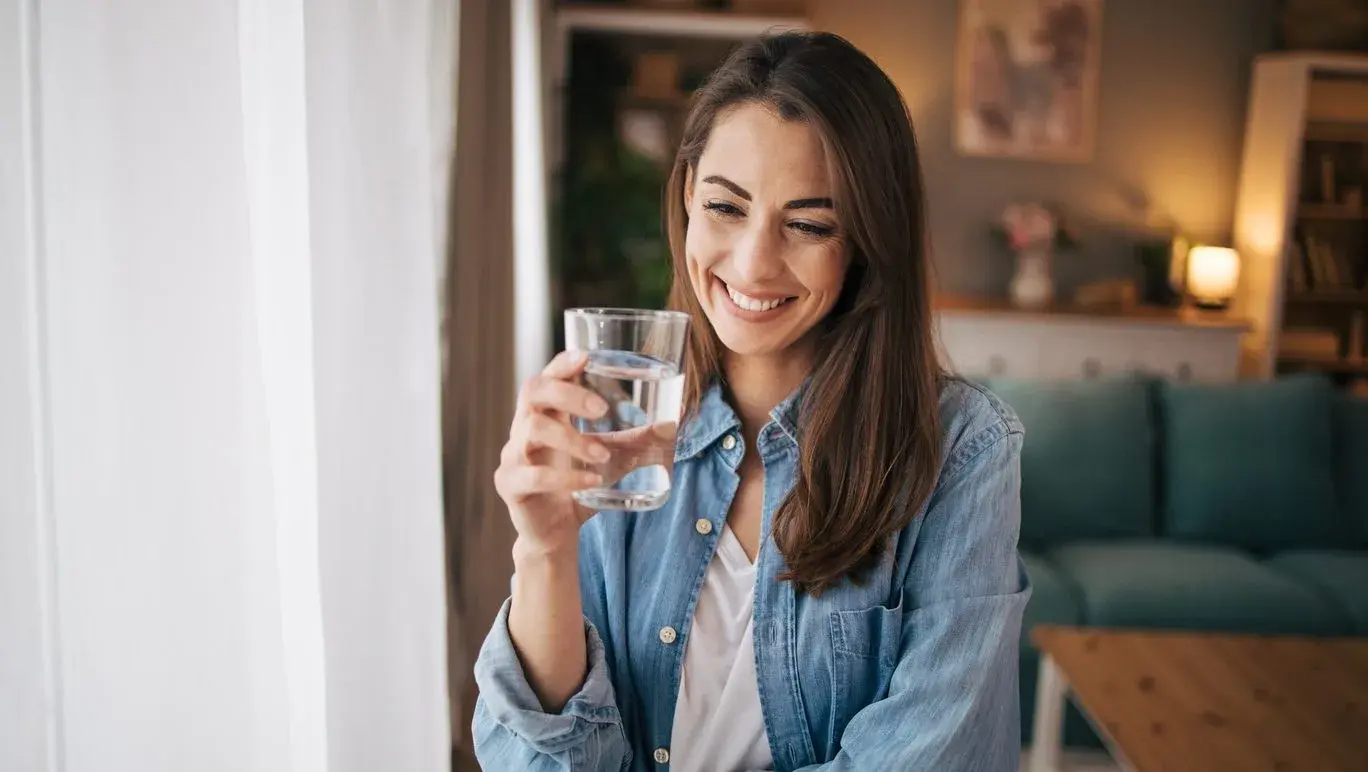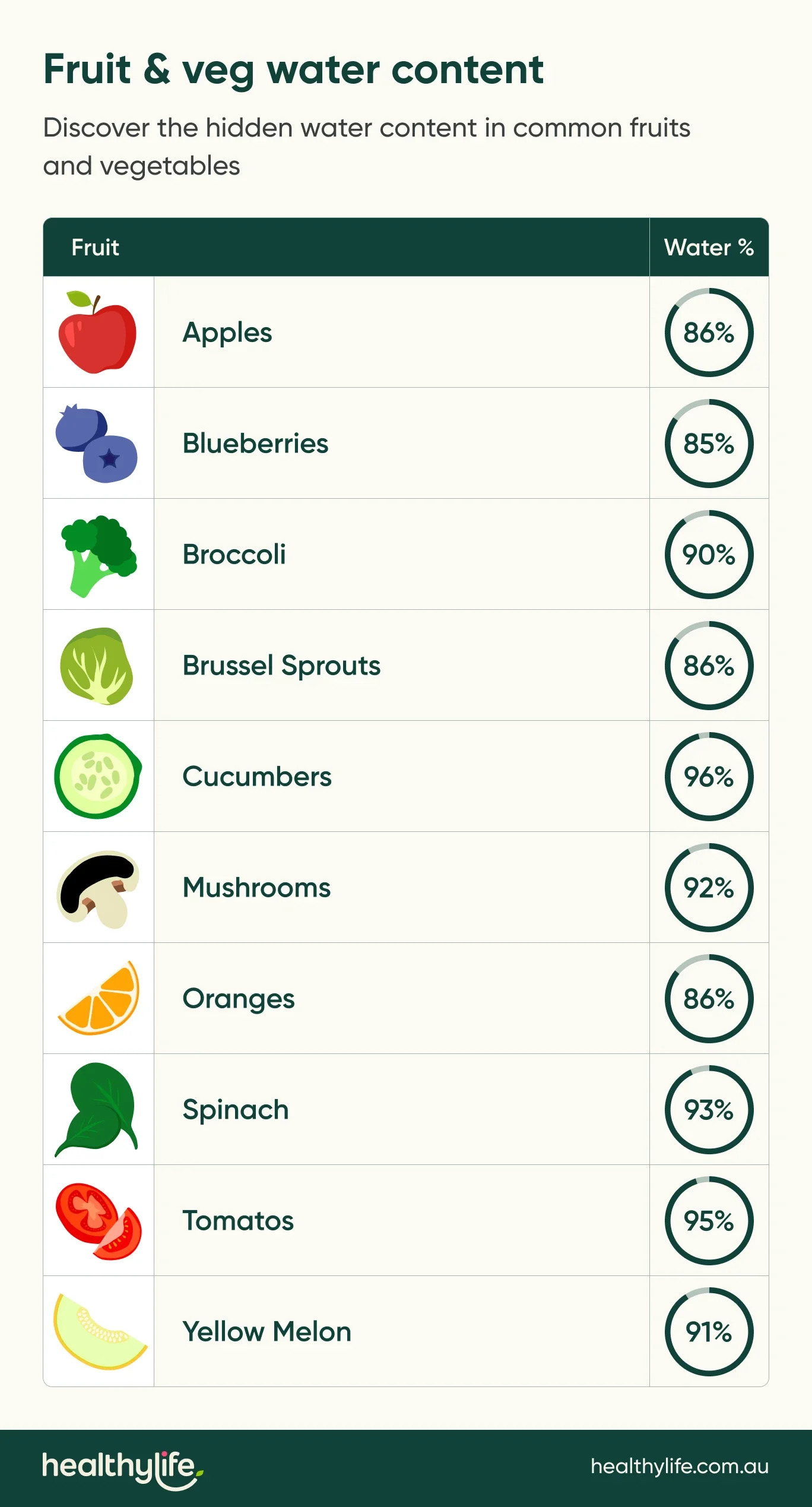How to drink water if you don’t like it

Most of us know it’s important to stay well hydrated but it can be hard if you don’t like the taste of water or simply forget to drink it during the day. Let us introduce you to some tried and tested hacks on how to make hydration more appealing and delicious.
The health benefits of drinking enough water
Two-thirds of the human body is made up of water so it makes sense that water is essential to our daily functioning. Water is like the delivery man and waste collector of the body, from absorbing and delivering nutrients, maintaining circulation, helping with digestion, lubricating our organs, to handling our unwanted waste products. Your body also uses water to regulate body temperature (yes, like your own in-built air conditioner!).
Staying well hydrated may also support energy levels, maintaining concentration and a positive mood. Plus, it can also help with skin health as water is stored in the layers of the skin.
Why do we need to continually drink water?
We’ve learnt that water is used by our cells, tissues, and organs to keep the body functioning well. So, why do we have to keep drinking this stuff? Well, we lose water (and other salts) through everyday body processes and in particular:
- sweating, especially on those hot sunny days
- breathing
- urinating
- digestion
How much water do you need per day?
8 to 10 cups (on average) can be used as a rough guide but this depends on other factors such as illness, your unique needs, the temperature outside and whether you’ve been exercising. If you want to check your hydration status, there’s an easy, not-so-glamorous way: check the colour of your wee.
5 ways to drink more water
- Try infusing your water with cucumbers, berries, strawberries, a slice of lime, a tinge of mint or kiwi fruit.
- Find your perfect temperature. Place a bottle of water in the fridge, outside at room temperature, or slightly warm it and find out which one you prefer best.
- If you’re a forgetful drinker, carry a reusable water bottle to remind you.
- If you are someone who carries a phone more often than a water bottle, then good news. You can use it to your advantage by setting quick alarms to sip every 30 minutes.
- Place a glass on the table with each meal or snack. This way, you can be sure you are getting your daily water throughout the day.
Are there any good water alternatives?
The dietary guidelines recommend regular, still water should be our main drink of choice however sometimes we just need to mix it up a little. Here are our top healthy water alternatives:
- Herbal teas
- Sparkling water
- Milk
- Oral rehydration or electrolyte drinks for rehydrating after cases of gastro, food poisoning and excessive sweating, such as high intensity or endurance exercise.
Drinks to be mindful of:
- Coffee and tea with caffeine can be part of a healthy diet but be mindful of how much caffeine you’re consuming and at what time in the day, as it is a stimulant and may affect sleep.
- Energy drinks often contain high levels of caffeine and added sugar.
- 100% fruit juice counts towards fruit serves however the recommended serve size is ½ cup (125mL). Tip: Try a whole piece of fruit instead to satisfy your sweet cravings while rehydrating with a glass of water.
What else contributes to water intake?
Many fruits and vegetables contain water and therefore contribute to hydration when meeting the recommended serves of vegetables and fruit per day. Whilst they shouldn’t replace the rough guide of 8-10 cups of drinking water per day, they’re a delicious way to add to total water intake.

Related articles:
This article is for informational purposes only and does not provide medical advice, diagnosis, or treatment. Any information published on this website or by this brand is not intended as a substitute for medical advice. If you have any concerns or questions about your health you should consult with a health professional.
